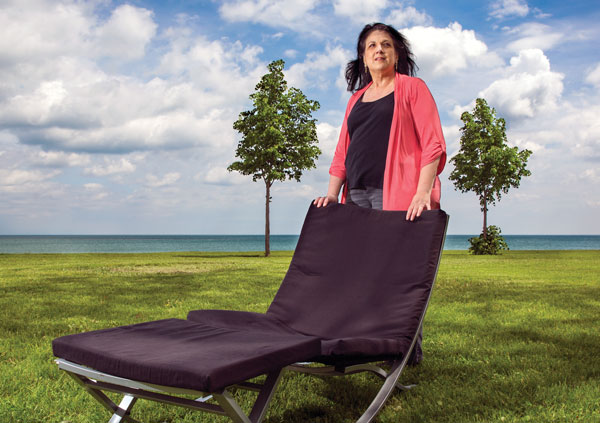Depression in the legal profession has been an ongoing and mounting issue for the past decade.
In all the common law countries, from Australia to the US, depression and suicide issues have concerned the respective law societies and bar associations.
New Zealand is no exception with increased concerns over depression, anxiety and related issues leading to increased Law Society initiatives in recent years, although with mixed results.
The death of criminal barrister Greg King served to highlight the issue further for the New Zealand profession and it is by no means alone in having to deal with the issue.
A study from John Hopkins University in 1990 which studied over 100 professions for anxiety-related issues found that depression among lawyers was 3.6 times more than other professions.
It’s doubtful whether much has changed for the better, too. A National Institute for Occupational Safety and Health study—based on data from 1984-1998—concluded that white male lawyers are more likely to turn to suicide than nonlawyer professionals.
A wide variety of factors contribute to the issue. For instance, the prevalence of billable hours in the legal profession has caused mental health concerns among lawyers.
In Australia Bernadette Healy,a counsellor for the Victorian Bar, says “It’s not sustainable for most people to work in this way without some quite large cost. It’s not reasonable to expect people to cope with the kind of pressure they’re under for indefinite periods of time.
“Isolation is a risk factor as well. If they have to do a large proportion of billable hours completely alone that can be stressful.”
The ABA Journal recently reported on the issue, reporting on ways to cure anxiety and depression.
Soon after graduating from New York University School of Law and joining the corporate practice of a white-shoe Manhattan law firm, Will Meyerhofer gained 45 pounds, was sleep-deprived and was frequently sick. “I was a nervous wreck. I was shattered,” says Meyerhofer, who’d also graduated from Harvard. “Even though I got to the very top, I was treated like an idiot and I felt I didn’t belong in the field. I was a mess. At the end of the day, I really only looked forward to seeing my dog.”
Not surprisingly, this experience triggered major anxiety for Meyerhofer, who often found himself “curled up in a ball, crying, losing it.” Even after he left the profession, he had panic dreams about being back at the firm.
“The official number is that something like a gazillion lawyers are stressed out, and that amounts to a bajillion percent of the profession,” observes Meyerhofer, who became a licensed clinical social worker after benefiting tremendously from therapy he himself underwent to “get a grasp on what happened to me in Big Law.”
Counseling stressed-out attorneys has since become a specialty for Will Meyerhofer, a former Big Law attorney who became a nervous wreck despite success in his firm. He got to depressed the only thing he looked forward to was seeing his dog.
After leaving his firm he had panic dreams about being back there.
He has also written a book, Way Worse Than Being a Dentist: The Lawyer’s Quest for Meaning. In his practice, lawyers complain frequently and primarily about depression and anxiety. “I see it like crazy.”
PERFECTLY NEGATIVE
Two character traits—perfectionism and pessimism—are prevalent among lawyers and may make them prone to anxiety, according to Gayle Victor, who worked as a consumer debt attorney for 25 years before becoming a social worker. “Perfectionism helps lawyers succeed in practice because the profession is excessively detail-oriented. In the Johns Hopkins study, optimism outperformed pessimism—except in the legal profession, because lawyers are hired to always look out for what can go wrong.” Stressed-out lawyers account for 75 percent of Victor’s practice, Care for Lawyers, which is based in Evanston, Illinois.
Taken to the extreme, perfectionism transforms into a feeling that nothing is good enough. “Attorneys develop an overdeveloped sense of control, so if things don’t go as planned, they blame themselves. They think they didn’t work hard enough or they were careless,” explains Tyger Latham, a Washington, D.C.-based psychologist who treats many lawyers and law students. “Paid worriers, lawyers are expected to predict the future, to anticipate threats and guard against anything that could arise. So they learn to see problems everywhere, even when they don’t exist. And they start to perceive threats as if they’re life-or-death matters. That’s the very definition of anxiety.”

Gayle Victor. Photo by Wayne Slezak.
What can then happen is that looking for risk and problems moves beyond just being a job or a profession and becomes the way that lawyers approach life, says Alan Levin, who spent 34 years as a labor and employment lawyer before co-founding the Care for Lawyers therapy practice with Victor. Lawyers tend to perceive far higher stakes when they encounter adversity, Levin says.
“It’s like coming home with four A’s and a B and only focusing on the B. Mistakes are not tolerated well. Plus, the atmosphere of law offers minimal support amidst the high pressure,” contributing to a profound sense of isolation for lawyers. As a result, “without a doubt, every lawyer I see has anxiety greater than the average population.”
Mental health disorders can profoundly affect attorneys’ daily functioning.Irritability, obsessive thoughts, feelings of inadequacy, difficulty concentrating, a sense of worry and impending danger, sleep disturbances, heart palpitations, sweating, fatigue and muscle tension are all side effects of anxiety and depression, according to Latham. Some attorneys withdraw from peers, friends and family or engage in “maladaptive coping behaviors,” such as self-medicating with alcohol and other substances.

Will Meyerhofer underwent therapy for anxiety while working at a corporate law firm. He now has a practice counseling stressed-out attorneys.
Meyerhofer, too, has seen “strange compensatory behavior” among lawyers eager to gain a sense of control over their lives, including “hair pulling, hand washing, food disorders and gym anorexia,” he says. “I’ve seen weird stuff—lawyers who stay up all night playing video games, guys who use prostitutes.”
Read more at the ABA Journal
The post How To Deal With Anxiety and Depression in the Law appeared first on LawFuel New Zealand.




















